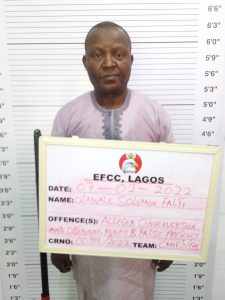
By Kalu Okoronkwo
The consequences of the judicial heist resulting from the judgement of the Presidential Election Tribunal (PEPT), that upheld the election of Asiwaju Bola Ahmed Tinubu as President of the Federal Republic of Nigeria have been profound, to say the least.
The judgement eroded the trust that Nigerians had in their judicial system, a trust that is crucial for maintaining social stability and upholding the rule of law.

The judiciary as the third arm of government has been regarded as the last bastion of hope for justice in Nigeria and elsewhere world over. As the institution that is supposed to ensure the rule of law, protect citizens’ rights, and hold those in power accountable, the judiciary is the last resort in the tripartite relationship existing in a democratic setting believed to bring succor to the common man who by the principle of inequality is abhorred by both the executive and the legislature most often.
However, recent events have cast a long shadow over this institution and has left the nation grappling with questions about the integrity of its judicial system and whether this last bastion of hope can ever be fully restored.
While it may suffice to say that expectations of many Nigerians may not have been the outright sack of the present administration of Tinubu, it was however unexpected that the judiciary will give him a clean bill of health from all the issues raised regarding his election, from his drug issues in America, competent basic educational qualification, age falsification, and most importantly not scoring the constitutionally required 25% votes from the Federal Capital Territory among various other issues.
The position of the judiciary in this matter has furthermore raised serious questions about the fairness of Nigeria’s legal system. Can an ordinary citizen, without political or financial influence, truly expect justice to prevail in the face of such powerful forces?
Expectations were rife that the judiciary should have stood as an impartial and incorruptible pillar of justice and serve justice in at least an area among the hydra headed image- defacing character of Mr. Tinubu, if not for any other thing to redeem its already tattered image. But again, the judiciary failed just as was expected by many who have long lost hope on anything good from the judiciary.
Instances abound regarding many high-profile cases involving powerful individuals and politicians that seemed to be decided not by evidence and the law but by underhanded dealings and undue influence. When citizens lose faith in the judiciary, they may resort to alternative means to seek justice, which can lead to social unrest and vigilante justice.
Corruption allegations are sticking stubbornly on the judiciary. Chairman, State and House of Representatives Election Petition Tribunal sitting in Kano, Justice Flora Azinge, recently raised the alarm that a senior lawyer was attempting to bribe her to influence judgement.
Though Justice Azinge did not disclose the identity of the lawyer allegedly trying to bribe the panel, she insisted that some senior lawyers arguing petitions before the tribunal were engaged in unwholesome moves to corrupt the system.
Visibly angry, she revealed in court how a senior lawyer offered a member of her staff N10 million to bribe the panel members. This was the second time the judge would raise such a weighty allegation. She had earlier accused an unnamed Senior Advocate of Nigeria of asking her to provide a bank account to send her “Sallah gifts.”
A notable Nigerian lawyer, Mr Tunji Abayomi, recently also gave instances of corruption in Nigeria’s judiciary, which he said had become a culture in the third arm of government.
To further buttress this allegation, Mr Abayomi said some time ago, a case that he had secured execution for was brought back to court and a judge stayed execution after he had allegedly collected money.
As at the last count two judges of the Federal High Court, Justice Mohammed Nasir Yunusa and Justice Hyeladzira Ajiya Nganjiwa, are presently facing trials preferred against them by the Economic and Financial Crimes Commission (EFCC) for allegedly receiving bribes from two senior lawyers, Rickey Tarfa (SAN) and Joseph Nwobike (SAN).
These are indeed a very dark period in Nigeria’s history when the judiciary, which should have stood as an impartial and incorruptible pillar of justice, are facing a shocking assault on its integrity. Allegations of bribery, coercion, and political manipulation of the judicial process are surfacing on a daily basis.
Prior to the ruling of the Presidential Election Petition Tribunal (PEPT), there was a media hype against the person of the retired Justice Mary Peter-Odili, where she was alleged to be ‘currently negotiating a pathway for Bola Tinubu’ and that ‘she meets regularly with Appeal and Supreme courts justices’ in that regard, an allegation she had promptly denied.
“We deny every allegation contained in the publication and state that the publication is false, malicious, mischievous and a deliberate attempt at smearing the integrity and solid reputation of her lordship”, said her media aide in a statement.
But the question is, with this kind of judgement by the tribunal, will it not be said that the old long adage “No smoke without fire” holds true?
With everything going on in Nigeria today, we should quickly come to terms with the fact that the independence of the judiciary is a cornerstone of any democratic society being the arm that acts as a check and balance on the executive and legislative branches of government, ensuring that the rule of law is upheld.
When the judiciary is compromised, democracy itself is at risk. Judicial heist not only jeopardizes individual cases but also the democratic principles upon which Nigeria is built.
Recovering from the judicial heist is a monumental task, but it is not insurmountable. It requires a multi-faceted approach including reforms as there would be need to embark on a comprehensive program of judicial reforms aimed at restoring the independence and integrity of the judiciary. These includes the appointment of competent and incorruptible judges, implementing transparent procedures, and enhancing judicial infrastructure.
Nigeria should also ensure that those responsible for undermining the judiciary must be held accountable. This include not only the individuals involved but also any officials complicit in the heist.
Raising awareness among citizens about the importance of a fair and independent judiciary is also crucial. When the public demands accountability and transparency, it puts pressure on the government to act.
Nigeria can seek support from the international community, including organizations committed to promoting the rule of law and democracy.
The PEPT judgement is obviously a dark chapter in Nigeria’s history, one that shook the very foundation of justice and democracy. However, it is not the end of the story as the litigants still have a window of appeal at the Supreme Court.
Unfortunately, Nigerians are also not too sure of the apex court judging by the recent rulings especially that of Senators Godswill Akpabio and Ahmed Lawan who were returned to the upper chamber of the National Assembly despite not being candidates in the primary election of their party in their states.
Nigeria has the potential to rebuild its judiciary, restore public trust, and reaffirm its commitment to the rule of law. The path to recovery will be challenging, but with determination, reforms and a collective commitment to justice, Nigeria’s last bastion of hope can shine brightly once again.
Kalu Okoronkwo, a leadership and good governance advocate wrote in from Lagos Nigeria and can be reached via winner4real75@gmail.com




机器人是 TG中文版下载 的特色功能,可以自动化执行各种任务,如提醒、游戏等。